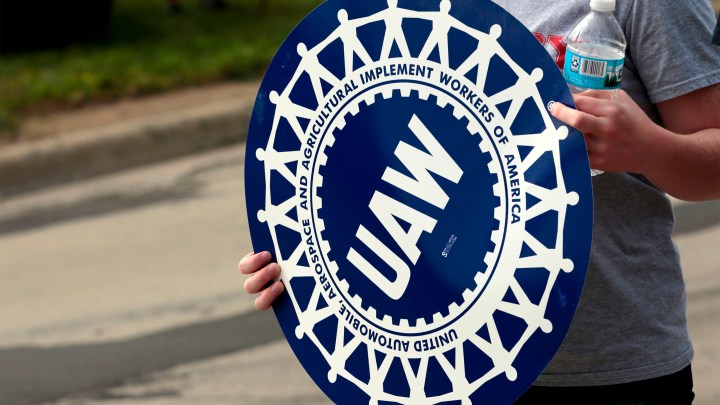
There’s growing support for a new way of collectively bargaining
There’s growing support for a new way of collectively bargaining

It looks like Ford is going to avoid the fate of General Motors, where about 50,000 United Auto Workers members walked out for six weeks. Less than a week after GM workers returned, negotiators for the UAW and Ford announced they had reached a tentative agreement. Ford employees will get many of the same terms agreed to in the GM contract because they were able to piggyback on the GM negotiations in what is kind of a watered-down form of “sectoral bargaining,” in which labor unions negotiate not company by company, but for all workers in an entire sector of the economy. It’s an idea that is gaining traction in the presidential race and beyond.
There was a time when sectorwide bargaining was common in industries like steel, construction and mining, but the idea fell out of favor, in part because the labor movement was divided.
When federal laws that protect unions were put in place in the late 1930s and early 1940s, sectoral bargaining wasn’t part of the deal. Instead, unions could only bargain with one company at a time, called enterprise bargaining.
Today, that system is a mismatch with the way our economy is organized, said Kate Andrias, a law professor at the University of Michigan, who noted union membership has dropped dramatically in recent decades, leaving more Americans without bargaining contracts. A study from the Brookings Institution showed union members make 15%-20% more than nonunion workers at the same job.
Andrias points out wages are higher and income inequality is lower in countries like France and Germany where sectoral bargaining is common. “So that helps ensure that the companies get to compete on lots of factors like innovation and management, but not by engaging in a race to the bottom on wages and benefits,” she said.
Many of the top Democratic presidential candidates, including Bernie Sanders, Elizabeth Warren, Pete Buttigieg, Cory Booker and Beto O’Rourke have included the idea in their platforms.
Harley Shaiken, a labor expert at University of California, Berkeley, said the idea is now being taken more seriously because of growing income inequality and the “gigification” of work.
“Enterprise bargaining was never set up for that diversity of employer-worker relationships,” he said.
But sectoral bargaining is not permitted under current labor law, so it would require new legislation, and the chances of it passing are low with the Senate controlled by Republicans.
There’s a lot happening in the world. Through it all, Marketplace is here for you.
You rely on Marketplace to break down the world’s events and tell you how it affects you in a fact-based, approachable way. We rely on your financial support to keep making that possible.
Your donation today powers the independent journalism that you rely on. For just $5/month, you can help sustain Marketplace so we can keep reporting on the things that matter to you.












